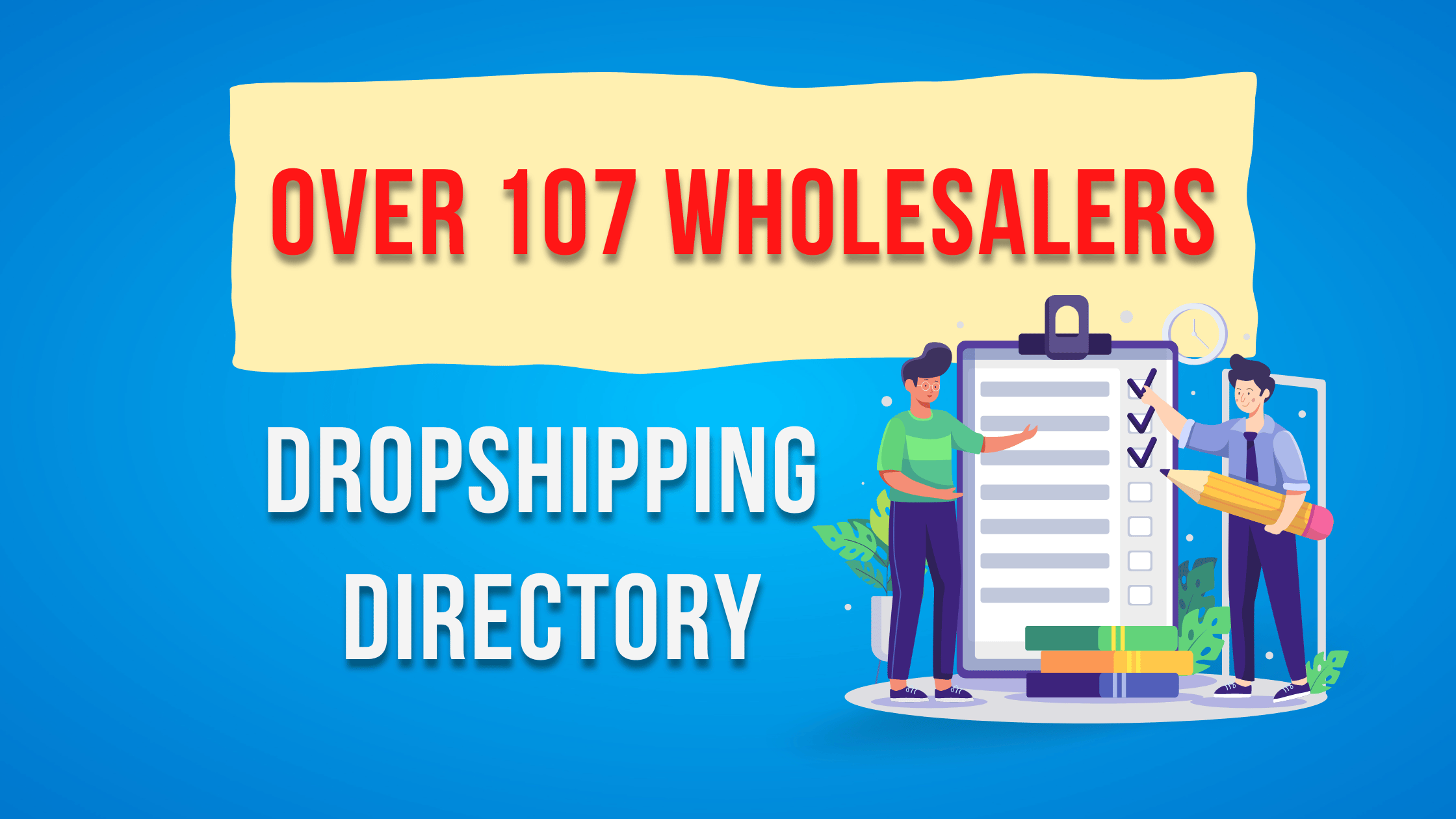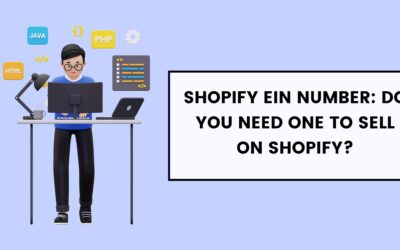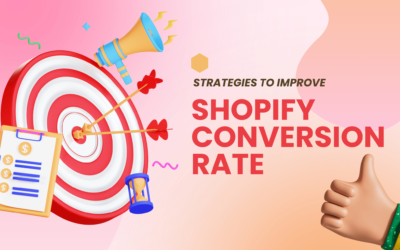Dropshipping Wholesaler Directory: Your Choice of Over 107 Suppliers
Showcase: 107 Dropshipping Wholesalers – An E-commerce Game Changer
Are you ready to transform your e-commerce dreams into a flourishing reality? Brace yourself as we unveil our extensive directory featuring a staggering selection of over 107 premium dropshipping wholesalers. This directory, crafted with careful precision and profound market knowledge, offers you an incredible range of suppliers, each with unique strengths and product offerings.
Whether you’re looking to sell cutting-edge tech gadgets, trendy fashion apparel, exquisite handmade crafts, or even eco-friendly products, we’ve got you covered. This one-of-a-kind dropshipping wholesaler directory isn’t just a list – it’s a meticulously curated treasure trove of global suppliers ready to fuel your e-commerce ambitions.
Broad Categories, Diverse Options
Our dropshipping directory cuts across various niches, giving you an exhaustive collection of wholesalers to choose from:
- Fashion & Apparel Wholesalers: These suppliers are your fashion runway, offering an endless variety of trendy clothing and accessories.
- Home & Lifestyle Wholesalers: Spruce up your store with a selection of chic, modern, and classic home décor items.
- Tech & Electronics Wholesalers: Keep your tech-savvy customers satisfied with the latest gadgets and gizmos.
- Health & Beauty Wholesalers: Make your store the go-to place for premium beauty products and wellness essentials.
- Sports & Outdoor Wholesalers: Equip your adventurous customers with high-quality sports and outdoor gear.
By offering a diverse range of categories, we aim to cater to every entrepreneur’s needs, regardless of your chosen e-commerce niche. Our mission is to equip you with the resources to find the perfect supplier who aligns with your business goals and customer base.
Bespoke Features of Each Supplier
In this directory, we don’t merely list supplier names. We delve deeper, providing essential information about each supplier’s standout features, product range, shipping policies, and more. You’ll have at your fingertips details about their reliability, customer service quality, product authenticity, and shipping speed. We’ve even rated each supplier based on these crucial parameters to help you make an informed decision.
Get ready to navigate the exciting world of dropshipping with our comprehensive directory! Stay tuned as we dive deeper into this goldmine of opportunities, designed to guide you on your path to e-commerce success.
Dropshipping Wholesalers List
General Merchandise
- Alibaba – Electronics, Apparel, Home & Garden, and more
- Doba – Electronics, Apparel, Home & Garden, and more
- Wholesale Central – Electronics, Apparel, Home & Garden, and more
- Sunrise Wholesale – Electronics, Home Decor, Garden Decor, and more
- DHgate – Electronics, Apparel, Home & Garden, and more
- Worldwide Brands – Various categories
- SaleHoo – Various categories
- InventorySource – Various categories
- National Dropshippers – Various categories
- Megagoods – Consumer Electronics
- Wholesale2b – Various categories
- Dropship Direct – Various categories
- CJ Dropshipping – Various categories
- Oberlo – Various categories
- AliExpress – Various categories
- Spocket – Various categories
- uDroppy – Various categories
- BigBuy EU – Various categories
- CostTag – Electronics, Home & Garden, Apparel, and more
- Dallas Wholesalers – Apparel, Bags, Home & Garden, and more
- eSources – Various categories
- The Wholesaler UK – Various categories
- Clearance King – Various categories
- Wholesale Deals UK – Various categories
- AFG Distribution – Various categories
- Collective Fab – Fashion & Accessories
- Tmart – Electronics, Apparel, Home & Garden, and more
- US Direct – Various categories
- Faire – Various categories
- FondMart – Apparel
- My Online Fashion Store – Fashion & Accessories
- SPOCKET for Suppliers – Various categories
- Tundra Wholesale – Various categories
- WeFulfillIT.com – Various categories
- WYNIT Distribution LLC – Electronics, Outdoor, and more
- Dropified – Various categories
- Tundra – Various categories
- TurnkeyMaster – Various categories
Fashion & Accessories
- FashionTIY – Fashion & Accessories
- Ruby Imports – Jewelry
- Star Bay Printwear – Printwear
- Jillian Distributors – Leather jackets, flasks, knives, and more
- Silverts – Senior and disabled adaptive clothing
- Nordstrom Rack – Fashion & Accessories
- Kiskissing – Kids & Baby clothing
- MisterShopUSA – Fashion & Accessories
- Organic Plus Brands – Organic Apparel
- Plum Island Silver – Silver Jewelry
- Silblade – Car wipers (Auto Accessories)
- SkullSplitter Dice – Game accessories
- Thimblepress – Accessories
- Thor’s Hammer Jewelry – Jewelry
- Tyche Fashion – Women’s apparel
- Ujena Wholesale Swimwear – Swimwear
Electronics
- Petra Industries – Consumer Electronics
- Wheelbarrows of Hope – Electronics, Outdoor, and more
- Eternity Wireless – Mobile device accessories
- Mobileistic – Mobile device accessories
Toys & Hobbies
- Brybelly – Toys, Games, Sporting Goods, Health & Beauty products, and more
- EE Distribution – Wholesale Distributor of Action Figures, Toys & Collectibles
- ToyDirectory.com, Inc. – Toys
- Monster Group UK – Home & Leisure, including toys
Home & Garden
- Bangalla – Organic and Natural products
- Koehler Home Decor – Home Decor
- Geko Products – Home Decor
- BL Gifts Wholesale – Variety of products including Home & Garden
- MX Wholesale – Variety of products including Home & Garden
Beauty & Health
- Beauty Joint – Beauty products
- Born Pretty – Beauty & Jewelry
- FragranceNet – Beauty products
- FragranceX.com – Fragrances
- Bomb Cosmetics – Handmade Cosmetics
Automotive
- Tuscany Automotive – Automotive
Pet Supplies
- Pet Stores USA – Pet Supplies
- Essential Pet Products – Pet Supplies
Food & Beverage
- Kole Imports – General Merchandise including Food & Beverage
- Troyer’s Country Amish Blatz – Food & Beverage
- TrueBrands – Food & Beverage
What is dropshipping?
You’ve probably heard the term ‘dropshipping’ bouncing around in e-commerce conversations and wondered what the buzz is all about. Dropshipping is a unique business model that’s making waves in the online retail world, and for good reason.
In essence, dropshipping is a retail fulfillment method where a store doesn’t keep the products it sells in stock. Instead, when a store sells a product, it purchases the item from a third party — typically a wholesaler or manufacturer — and has it shipped directly to the customer. As a result, the seller doesn’t have to handle the product directly.
The dropshipping model has a simple flow:
- Customer places an order from your online store.
- You forward the order details to your dropshipping supplier.
- The dropshipping supplier packages and ships the product directly to your customer.
This streamlined process has its perks! First, dropshipping eliminates the need for upfront inventory investment, making it a low-risk entry into the e-commerce space.
Secondly, you’re freed from the logistical nightmares of handling stock and managing shipping. Your focus can remain on building a fantastic online storefront, marketing your products, and providing excellent customer service.
Lastly, dropshipping offers immense scalability. Since you don’t have to worry about inventory management, it’s easier to expand your product offerings, reach more customers, and grow your business.
In a nutshell, dropshipping has emerged as a lucrative and flexible e-commerce model, making the dream of running an online business a more accessible reality.
Understanding Wholesale and Dropshipping: An Insider’s Perspective
Having been immersed in the e-commerce industry for years, navigating the intricate world of wholesaling and dropshipping, I’ve gained valuable insights that I’m eager to share. Let’s dissect these two crucial concepts and understand what sets them apart.
Wholesaling Explained
Wholesaling is the process of buying goods in bulk from a manufacturer and selling them in smaller quantities to retailers. As a wholesaler, you act as an intermediary between the manufacturer and the retailer, providing the latter with a wide range of products at a lower cost.
Over the years, I’ve helped several of my clients set up profitable wholesaling operations. They purchase large quantities of products, store them in a warehouse, and sell them to retailers or direct consumers.
Dropshipping Defined
Dropshipping, as we discussed earlier, takes a different route. It’s a business model where you sell products on your online store without physically handling the inventory. When a customer places an order, your dropshipping supplier ships the product directly to the customer.
In my experience running successful dropshipping stores and guiding numerous clients, I’ve found that dropshipping is a brilliant way to start an e-commerce business with minimal upfront investment.
Wholesale vs. Dropshipping: The Key Differences
The main difference between these models lies in inventory management. With wholesaling, you purchase inventory upfront and handle the logistics of storage and shipping. Dropshipping, on the other hand, bypasses these challenges. You only purchase the product after your customer has paid, and the supplier handles the shipping.
Both models have their merits and drawbacks.
Wholesaling Pros and Cons
Pro: Purchasing in bulk typically results in lower per-unit cost, potentially increasing your profit margins.
Con: It requires significant upfront investment and you’re left with unsold inventory if the products don’t sell as anticipated.
Dropshipping Pros and Cons
Pro: Low startup costs and no inventory risks make dropshipping a safer bet for beginners.
Con: Since you’re not buying in bulk, the cost per item can be higher, which might reduce your profit margins.
In my years of e-commerce consulting, I’ve seen clients thrive in both models. The choice between dropshipping and wholesaling depends on your business goals, budget, and how hands-on you want to be with inventory management.
The Role of Dropshipping Wholesalers and Vendors: Making the Right Choice for Your Business
In the vibrant world of e-commerce, understanding the roles of dropshipping wholesalers and vendors is critical. As an e-commerce consultant who has guided countless businesses to success, I can testify to the significance of choosing the right partners for your online store. Let’s dive into what these terms mean and why they matter.
Dropshipping Wholesalers: Your Bulk Suppliers
Dropshipping wholesalers are businesses that offer products in bulk at reduced prices. These businesses typically have partnerships with manufacturers or producers and provide a wide array of products. When you partner with a dropshipping wholesaler, you get access to a vast inventory without the need to invest in stock upfront. Instead, the wholesaler fulfills orders as they come from your store, shipping directly to your customers.
Vendors: Your Direct Manufacturers
Vendors, on the other hand, are usually manufacturers or producers of goods. When you source products directly from vendors, you’re essentially getting your stock straight from the source. This arrangement can sometimes lead to more favorable pricing or exclusive products not available through wholesalers.
Wholesalers vs. Vendors: The Crucial Differences
The main difference between wholesalers and vendors lies in their position in the supply chain. Wholesalers act as middlemen between manufacturers (vendors) and retailers (you), while vendors are the original producers of goods.
Choosing between the two often depends on your business needs and the nature of the products you wish to sell. Wholesalers might offer a broader product range, making them an excellent choice for stores selling various items. Vendors can provide more in-depth product knowledge and potential exclusivity, beneficial for niche or specialized stores.
Why Does This Matter For Your Business?
Understanding these distinctions helps you make strategic decisions for your business. For instance, if you’re looking for exclusive products to differentiate your store, a vendor could be your best bet. On the other hand, if you need a wide array of products without dealing with multiple partners, a dropshipping wholesaler might be the ideal choice.
Identifying Legitimate and Fake Wholesale Drop Shippers: Safeguarding Your E-commerce Business
Fake drop shippers lurk in the shadows, ready to entice unsuspecting business owners with irresistible offers. As an experienced e-commerce consultant, I’ve encountered these challenges and can guide you on how to distinguish legitimate wholesale drop shippers from the fraudulent ones.
Spotting Fake Drop Shippers
Fake drop shippers often exhibit several telltale signs:
- Upfront Fees: Legitimate drop shippers typically make their money by selling products, not by charging membership or ‘handling’ fees. Be wary of wholesalers demanding substantial upfront fees.
- Selling to the Public: Genuine wholesalers usually require proof of your business — like a resale certificate — before doing business with you. If a wholesaler sells products directly to the public at ‘wholesale prices,’ that’s a red flag.
- Lack of Contact Information: If the wholesaler’s website lacks detailed contact information, it might be a sign of a fake drop shipper. A legitimate business should provide contact details, including a physical address.
Strategies to Identify Legitimate Wholesalers
Finding trustworthy drop shippers is a crucial step in setting up a successful e-commerce business. Here are some strategies that I’ve found effective in my years of helping clients:
- Research: Take the time to research potential wholesalers. Check for reviews, read forums, and ask for references. Look for a strong history of satisfied customers.
- Verify Business Information: Legitimate wholesalers should provide comprehensive contact and business information. Verify these details using business directories or contact the company directly.
- Sample Orders: Place a few sample orders to evaluate the wholesaler’s service. Assess the product quality, shipping speed, and customer service.
- Attend Trade Shows: Trade shows are excellent venues to meet and evaluate potential drop shipping partners. These events also offer networking opportunities with other e-commerce businesses.
The Art of Choosing the Right Dropship Suppliers: A Guide to Ensuring Your E-commerce Success
Choosing the right dropship supplier is as much an art as it is a science. As an e-commerce veteran, I’ve learned that the best supplier relationships are those that not only meet your business needs but also align with your brand values and customer expectations. Here’s a guide to help you make the right choice.
Factors to Consider When Choosing a Dropship Supplier
- Product Quality: Your products are the heart of your business. Ensure that your supplier provides high-quality products that will meet or exceed your customers’ expectations.
- Reliability: A reliable supplier delivers orders accurately and on time. Look for a supplier with a proven track record of reliability.
- customer service: Strong customer service is crucial. Your supplier should be responsive, helpful, and easy to communicate with.
- Pricing: Consider the supplier’s pricing and whether it fits into your business model. Remember that while lower prices can lead to higher profits, they shouldn’t come at the expense of product quality or service reliability.
- Scalability: Your supplier should be able to meet your business needs as you grow. A supplier that can scale with you will be a valuable asset as your business expands.
Evaluating Potential Dropship Suppliers
Here are three wholesalers from our directory that I recommend you consider:
- Doba: Doba is known for its extensive product selection, offering a variety of items across numerous categories. It has a user-friendly interface and provides a detailed view of product trends, helping you make informed decisions. Their commitment to quality, timely delivery, and excellent customer service make them a top choice.
- Worldwide Brands: With a robust directory of certified suppliers, Worldwide Brands offers a vast array of products. They are dedicated to wholesale authenticity and are especially beneficial for businesses looking to sell niche products.
- SaleHoo: SaleHoo stands out with its comprehensive market research tools, helping you spot the latest trends and profitable products. Their supplier directory is easy to navigate, and their customer service is commendable.
Remember, the process of choosing a supplier is not one-size-fits-all. Take your time, do your research, and choose a supplier that meets your specific needs and business objectives.
Geographical Considerations in Dropshipping: Aligning Your Suppliers with Your Market
Geographical considerations play a significant role in the success of your dropshipping business. Choosing suppliers based on your target market’s location can considerably impact your delivery times, shipping costs, and overall customer satisfaction. Let’s delve into why it’s crucial to consider country-specific locations when choosing suppliers and understand the opportunities and challenges of international dropshipping.
The Importance of Country-Specific Locations in Choosing Suppliers
The location of your supplier can have a direct impact on your business operations. For instance, if your supplier is in the same country as your target market, you can expect shorter shipping times and lower shipping costs, leading to happier customers and potentially higher profit margins. Moreover, dealing with domestic suppliers may simplify communication due to the absence of language barriers and time zone differences.
The Pros and Cons of International Dropshipping
Pros
- Product Variety: International suppliers, particularly those from manufacturing hubs like China, offer a vast array of products often at competitive prices.
- Global Market: International dropshipping allows you to sell to customers worldwide, opening up vast market possibilities.
Cons
- Longer Shipping Times: Shipping products internationally often takes longer, which might not sit well with customers accustomed to fast delivery times.
- Customs and Duties: International shipments may be subject to customs inspections and duties, adding to costs and delivery time.
- Communication Challenges: Language barriers and different time zones can complicate communication with international suppliers.
In my experience, understanding these geographical considerations is key to building a successful dropshipping business. Choose your suppliers wisely based on your business model, target market, and logistical capabilities.
Paid vs. Free Dropshipping Supplier Directories: Which One is Right for Your E-commerce Business?
When sourcing dropshipping suppliers, you’ll encounter both free and paid directories. Each has its advantages and drawbacks, and the best choice depends on your unique business needs and resources. Based on my years of experience, here’s a quick overview to help you navigate these options.
Benefits and Drawbacks of Paid Directories
Benefits
- Quality Assurance: Paid directories often provide a higher level of vetting for suppliers, which can give you greater confidence in their reliability and legitimacy.
- Exclusive Access: Some paid directories offer exclusive access to certain suppliers, which can give you an advantage over competitors using only free resources.
- Additional Features: Paid directories may offer extra features such as market research tools, trend tracking, and customer support, which can be beneficial to your business.
Drawbacks
- Costs: The most obvious drawback of paid directories is the cost. Make sure the potential benefits justify the expense for your business.
Overview and Value of Free Directories
Free directories are a popular choice, especially for businesses just starting out in dropshipping. They offer access to a wide range of suppliers without any upfront cost. However, they may require more time and effort to sift through suppliers and determine their reliability. Free directories might lack the extra features of paid directories, but they can still be a valuable starting point.
The Value of Investing in a Paid Directory
Investing in a paid directory can be beneficial if it aligns with your business needs. With their added features and quality assurance, they can save you time and provide access to exclusive suppliers.
Both free and paid directories have their place in sourcing suppliers for your dropshipping business. The key is to understand your business needs, resources, and strategy to make the right choice. Many choose to start with free and advance to paid.
Handling Logistics: Shipping and Returns in the Dropshipping Model
Navigating the logistics of shipping and returns is a critical aspect of your dropshipping business. As someone who’s managed successful e-commerce stores for years, I’ve learned that understanding how suppliers handle these operations is key to maintaining customer satisfaction and profitability.
Shipping: Domestic and International Considerations
Shipping policies can greatly vary from one supplier to another. Many suppliers will offer several shipping options, from standard to expedited, depending on the destination. Domestic shipping is usually straightforward, with predictable costs and delivery times.
International shipping, however, can be more complex due to customs processes, duties and fees, and longer transit times. It’s vital to understand a supplier’s international shipping policies and costs, as these can impact your pricing and customer expectations.
Returns: How Suppliers Typically Manage Them
Most dropshipping suppliers have return policies in place for defective or incorrect items. However, the specific terms, like who pays for the return shipping or how long the customer has to initiate a return, can vary. Some suppliers might offer a restocking fee for returned items that aren’t defective, so it’s essential to know these details upfront.
Negotiating Shipping and Returns Policies with Suppliers
As you establish relationships with your suppliers, you might have the opportunity to negotiate these policies. For example, you could negotiate lower shipping rates or better return terms based on the volume of business you bring to the supplier. It’s always worth discussing these points, as any improvements can enhance your competitiveness and profitability.
FAQs: Navigating the Intricacies of Dropshipping
Over the years, I’ve heard many questions about dropshipping. Here, I’ll address some of the most frequent ones to shed light on this lucrative e-commerce model:
1. What is dropshipping? Dropshipping is a retail fulfillment method where a store doesn’t keep the products it sells in stock. Instead, when a store sells a product, it purchases the item from a third party—usually a wholesaler or manufacturer—and has it shipped directly to the customer.
2. How do I find more dropshipping suppliers? You can find dropshipping suppliers through directories, both free and paid, or by directly contacting manufacturers. Trade shows and networking events can also be good opportunities to find suppliers.
3. What do I need to consider when choosing a dropshipper? Important considerations include product range and quality, reliability, shipping times and costs, return policy, and customer service.
4. Are there free dropshipping supplier directories? Yes, there are free directories available, although they may require more time and effort to sift through. Paid directories usually offer more features and vetting of suppliers.
5. How do dropship suppliers handle returns? This can vary by supplier, but most will have a policy for handling returns of defective or incorrect items. It’s essential to understand the supplier’s return policy before doing business with them.
6. Do all dropshipping suppliers ship internationally? Not all suppliers will ship internationally, so it’s important to check this if you plan to sell products globally. Some suppliers may also charge additional fees for international shipping.
Final Words
In conclusion, dropshipping can be a lucrative and viable e-commerce model when managed effectively. It offers a world of opportunity, allowing you to sell a vast range of products without the need to hold inventory. However, it requires careful planning, thorough research, and a clear understanding of your supplier’s capabilities and policies.
The journey may be challenging, but with the right strategies, diligence, and a little bit of courage, it’s a journey worth embarking upon. Remember, as with any business venture, success doesn’t come overnight. Stay patient, persistent, and positive as you navigate the exciting world of dropshipping.
Shopify EIN Number: Do You Need One to Sell on Shopify?
Shopify EIN Number: Do You Need One to Sell on Shopify?An Employer Identification Number (EIN) is...
Mastering Amazon Pricing: Strategies to Maximize Profitability on the E-
Mastering Amazon Pricing: Strategies to Maximize Profitability on the E-Commerce Giant The...
Conversion is Key: Strategies to Enhance Your Shopify Conversion Rate!
Conversion is Key: Strategies to Enhance Your Shopify Conversion Rate!Your Shopify conversion rate...







